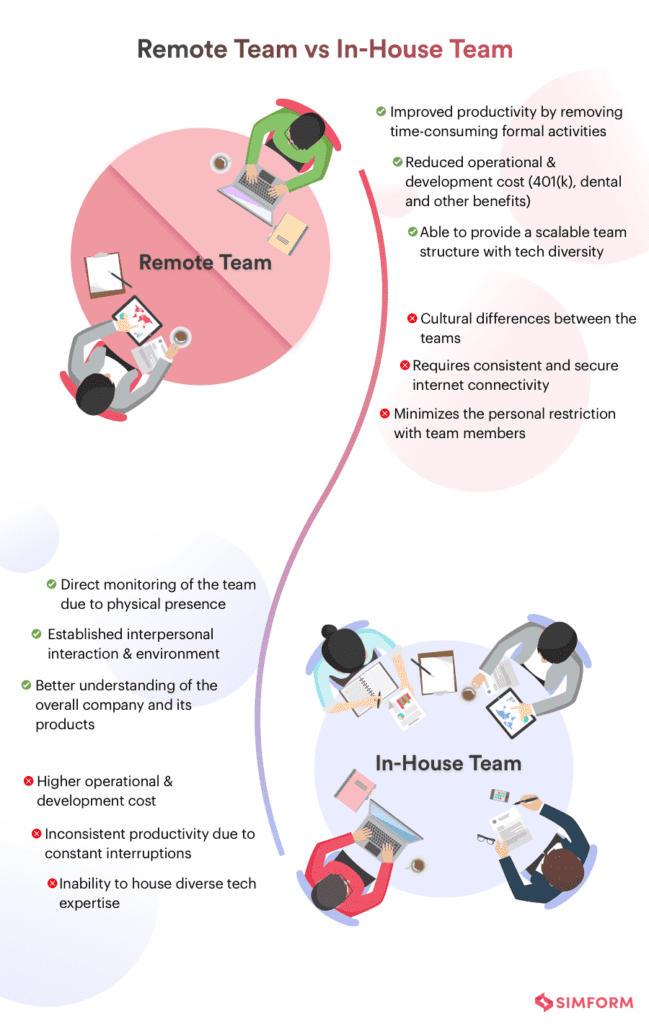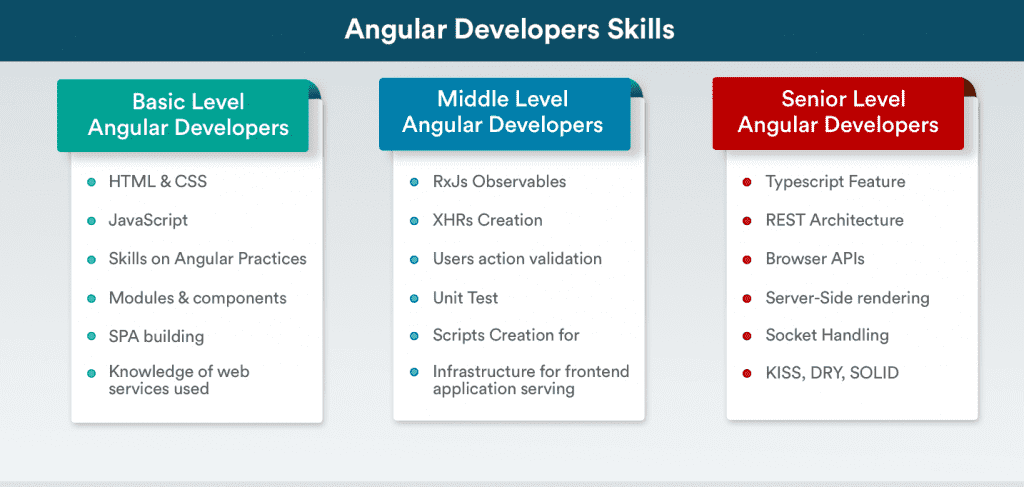Hire vetted Angular developers to scale up your web development
Hire Angular Developers within 3 days. Quickly scale up your team with our pre-vetted Angular developers and architects. Our engineers quickly adopt your culture to remove bottlenecks from your roadmap.

We are your Angular Army!
Finding the right talent is not easy. URU Systems helps you find the top 10% engineers so that you can focus on what’s important. Your business. Our developers have a proven track record of delivering software for high growth startups and Fortune companies.
Trusted by 900+ happy clients including these Fortune companies












Happy Clients
URU Systems builds & manages
remote engineering teams
Hire Dedicated Angular Developers that become a part of your team to speed up your development.
Devoted Customer Success Manager to give you a direct line of communication with the leadership.
Agile Development Methodology and collaborative work via sprint planning, stand-ups and weekly demos.
Speedy & Constant Communication through modern communication technology such as Slack, Skype & Google Hangout.
Simple & Flexible Contracts according to your requirements with an option to extend your team on your terms.
We are Part of your Team
The most difficult part of software development is building a high performing team. We’ve got you covered.
Step 1: Select Angular developers
URU Systems provides dedicated Angular developers to high-growth startups around the world. Once you receive a pre-vetted list of Angular developers for the interview, you decide who joins your team.
Our processes ensure they seamlessly integrate with your culture. So that they function just like any member of your team.


Step 2: Integration with your team
Once done, our developers become a part of your extended teammates. Directly manage Angular developers just like your in-house development team.
URU Systems’s leadership handles your team and manages payroll & benefits so that you can focus on things that matter- delivering amazing results
Step 3: Scale your team on-demand
Whether you want to start small or big, part-time, or full-time, we’ve multiple hiring models to suit your particular requirement. In short, we always have your back.
We work as your development partner to help you scale your team that integrate with your development workflow and team’s culture alike.

How to Hire Angular Developers?
A Guide by our CTO
Did you know the average cost of hiring an Angular developer is $50,552? This includes management time, overall productivity loss, and the cost of hiring a recruitment agency.
That’s almost like buying an Audi S5 Sportback Premium Plus every time you hire someone!
Is it worth spending this amount of money on a single hire? We understand that the talent marketplace is changing, and hiring top Angular developers is challenging. Non-tech companies also require developers to grow their business, which adds to the already fierce competition. Since you’re reading this, I assume you’re facing the same problem.
To have the best talent to work for you, you need to come up with a strategy that you can replicate. Let’s discuss some of the off-beat ways and strategies to hire Angular developers.
Difference Between Angular & AngularJS
If you’ve already browsed through hiring portals, you must have observed how these terms are interchangeable. Whether you’re posting a job or hiring an in-house Angular developer, it is essential to understand the difference between Angular and AngularJS.
AngularJS refers to the version 1.x, whereas Angular refers to all the versions after Angular 2 and plus.
This fundamental difference in terminology is to eliminate the confusion among older versions of JavaScript-based Angular and the current TypeScript-based Angular framework, which supports advanced capabilities like building Single Page Applications (SPA). To keep consistent branding, the Angular community has specified versions 1.x into AngularJS, and the subsequent versions are known as Angular.
5 Steps to Hire Angular Developers
In my overall experience working with recruiting agencies and in-house HRs, one go-to way is screening/hiring developers through online portals. I couldn’t help but wonder if that is the only option. Absolutely not! Let’s discuss five steps to hire the best talent.
Step 1: Gather your Project Requirements
A detailed project description is a perfect bridge to connect with the ideal developer. Working out on an accurate project description will help developers in self-evaluation based on their skills, experience, and scope of work. Give information about you, your organization, the scope of work, and the project timeline for a better understanding.
Angular developers are dominantly frontend developers with a specialization in the Angular ecosystem. Yet, there are many other skills and technologies that a frontend developer requires based on the specifics of the project. Writing a detailed job post can undoubtedly be a huge help.
Gather project requirements by looking at the long-term and short-term goals. With a thoroughly defined project description in hand, you can start looking for the developers. Let’s discuss where to begin in the next step.
Bonus Content: How to write a detailed job post for Angular Developers?
When you want to attract the right set of potential candidates, it is critical to convey the right expectations. A concise description is everything you need to hire a suitable candidate.
A lot of times, hiring managers end up describing inaccurate or vague information about the job. Also, they hesitate to reveal information, sometimes stating the NDA or confidentiality issues. However, it is perfectly fine to technically describe the situation because doing otherwise may lead you towards wrong hiring.
Guidelines for a useful job post:
– Scope of work: Convey the major deliverables with a concise title. For example, if you require someone with any specific knowledge of the framework or SPA or Angular components.
– Project timeline: Mention the project duration and milestones that you’re planning to achieve. Attach project documentation/mockups to help candidates understand your project more.
– Technical background: If you are looking for someone having a piece of specific knowledge, mention it. For example, someone having experience building PWAs or specific libraries or tools/languages.
Step 2: Where to find Angular Developers (Online or Offline)
Depending on the developer type (freelancer, remote, etc.), hiring methods vary (online, offline, etc.). Now there’s a difference between hiring developers at the physical office and virtually. You may think that hiring an in-house Angular developer will make more sense in terms of understanding the project requirements and face-to-face discussions. But, since in-house hiring isn’t the best solution for every need, one must explore other options too– hiring dedicated Angular developers, freelancers, or extending the development teams remotely.
The best part, you’ll be able to explore and see which option works best for you. Freelance developers do their best in some instances or tasks where more than one developer isn’t required. On the other hand, extending an Angular team can help you sail your project better and faster. However, all these options have different methods of hiring, i.e., online or offline. Both of these would require a little bit of work.
Hiring Offline
When it comes to looking through offline habitats of the software community, here are the few options that have worked for us.
#1. Tech Conferences/Meetups: Conferences and meetups are a great way to get involved and be an active part of the community. You name the technology, and there are plenty of them happening near you. However, just attending these events isn’t enough. If you can get yourself enrolled as one of the speakers or sponsors, you and your organization’s visibility grows exponentially. What’s more, your chances of attracting top talent increase manifold.
#2. Coworking Spaces: Coworking spaces are one of the potential places for networking. I realized this during my last visit to New York, where a coworking space regularly organizes lunches and high teas as an initiative to get to know each other and promote their business. In our case, this has served as an excellent opportunity to get ourselves noticed and hire developers.
#3. Hackathons: These are one of the best places to keep a watch for new talent since you can see them live in action. From time to time, we’ve been hosting hackathons by partnering with local colleges, and it has proved extremely fruitful for us.
Hiring Online
#1. Freelance Websites: Websites such as Upwork, Freelancer, and Fiverr are pretty helpful when you want to source talent for temporary, remote projects. However, in cases when you want to hire a full-time Angular developer, websites like Toptal works as a better option since the developers are pre-vetted.
#2. Developer Communities: Niche developer communities are an excellent platform when you want to hire developers with specific requirements; in our case, it’s Angular. Platforms such as GitHub, Reddit, and Stack Overflow work best. You can also reach out to a tech-specific newsletter that provides job postings. Apart from that, platforms like Angelist are also an excellent source to hire developers.
#3. Augmented Teams: When you’re scaling your projects and need a bunch of devs immediately, staff augmentation can come to your rescue. Tons of startups have hired extended teams at their scaling stage. Considering the tight market for in-house talent, a perfect option that can save your time and money without compromising on the work quality is- staff augmentation.
Dedicated development teams work best in cases where
You can’t find an expert or a developer with sound skills.
You need to double your development team due to specific projects.
Most of your employees are already engaged in the projects.
You are based in a region where development rates are high.
You have a small team, and you want to modernize your services.
Having discussed various modes of hiring, let’s jump onto how to shortlist the candidates and understand which type of team is perfect for you– remote or in-house.
Bonus Content: Should cost affect my hiring decision?
The standard rates of hiring Angular developers range between $45 to $120+ per hour. Again, it depends on the skillset, location, requirements, and different evaluation criteria.
First, let me tell you why startups end up hiring badly?
Angular communities are much aware of their work and know well how software development works. In short, they know the worth they deserve. Now if startups aim for lower prices and start evaluating the Angular developers based on their experience and expertise with a low wage, senior developers would not consider them as a potential employer.
Startups or any mid-level enterprise aiming for a low-wage strategy for Angular developers usually end up hiring inexperienced developers or beginners. This is the sole link between wrong hiring and an increased failure rate of startups, even with excellent clientele. Because if you know a thing or two about software product development, you must be aware that missed deadlines could cost you even more than hiring the most expensive talent. Plus, an average developer is more likely to produce code full of bugs buried deep inside.
Biggest Myth: Underestimating the worth of excellent developers. Period!
Angular developers are in high demand due to its popularity, and hence, you’ll find them demanding higher rates than another contemporary tech stack. Cost should never be the primary criterion for hiring Angular developers; instead, it is the skillset and relevant experience.
Step 3: Shortlist the Candidates (In-house or Remote)
Having decided where to find the developers you need, it’s time for shortlisting them. Shortlisting of candidates should be easy if you’re already clear about your project specifications and technical requirements. However, few prerequisites for Angular developers are:
Fluency with Git
Core understanding of TypeScript, JavaScript, HTML & CSS
Creating testable modules and components
Understanding the structure of SPA
Angular CLI
Node Package Manager (npm)
Typescript & Reactive extensions
Solid understanding of Angular
Experience with RESTul API integration
First off, set the criteria and screen the profiles accordingly.
Technical experience
How much experience does the candidate possess in terms of technicalities of Angular technology? Are they thorough with the Angular libraries and dependencies needed for a particular project? Hands-on experience in working with Angular framework, its latest versions, and relevant project experience (web, native, and mobile apps) make it a preferable choice for hiring a candidate.
Project management
Yes, we’re discussing hiring Angular developers, but as long as we are aiming for our project to be accomplished on time, project management is an integral part of the whole profile. Also, managing the tasks and setting their priorities should come as an inbuilt quality and role.
Tooling expertise
Of course, with the extensive knowledge and experience about the technology, a developer should be good at analyzing tools. Judging the right set of software required for specific tasks such as project management, debugging, etc. should be an added skill.
Portfolio background
You must check the background of anyone you are looking forward to working with. Ask for client testimonials and feedback regarding any specific expertise of them to know more about their profile authenticity.
After having set the standard criteria for the shortlisting of candidates, let’s move onto what type of team is a good option for you, before diving deep into the technical aspects of hiring in the 4th step.
Dedicated Remote Developer vs. In-house Developer?
In-house teams or remote teams? The debate is real. I’ve worked with both kinds of groups, and the differences are significant.
When you work with in-house teams, traveling is one of the major cons, primarily, if you’re based in a metro city. I remember a client from London sharing a similar problem as mine. He mentioned how some of his developers struggled with 3 hours of commute, to and fro, from the workplace. Travelling took a significant toll on the productivity of those developers. Apart from this, investment in infrastructure, administration, and operation is another burden.
Still, there are few advantages too. Your team understands the company goals, its product, and its culture the best. Plus, you have direct oversight over your outfit. But is it all worth it? Only if an in-person presence is required, you’ll have no problem in terms of cost per developer.
On the other end, dedicated remote teams release you from many headaches. Remote developers may lack face-to-face communication, but hey, there are tons of video conferencing tools available at your disposal. Plus, I’ve personally observed a 30% hike in productivity when developers are allowed to work wherever they want.

Step 4: How to Evaluate Angular Developers
Whether you’re hiring a freelancer, a dedicated Angular developer, or extending your development team, a set of technical questions will help you make the right decision.

#1. Fluency in TypeScript
Angular is written in TypeScript, and so is its ecosystem, including libraries and documentation. While hiring an Angular expert, one must check their fluency with TypeScript. This will make sure that they can make the most of its amazing features. Familiarity with tools like Atom and VSCode, which provide autocompletion and highlight errors, is an added benefit.
#2. Depth of Angular Knowledge
This point goes without saying. However, to give you a brief idea, below are the few points you can get started with:
How well do they know data binding and component communication?
Do they know how to do parent-child or child-parent component communication?
What are the services? When to use them?
What are directives? How to set them up?>
How well are they familiar with the promises and observables?
#3. Code Review Skills
All talk and no work is a bad combination! So your prospective candidate has all the qualities that you are looking for, but can they actually solve a problem and write quality code?
A code review of their current work should give you a better idea about their problem-solving capability. It doesn’t need to be flawless, but if there are bugs, they should be able to tell you how they can improve the code quality.
Code quality varies from developer to developer. Dip diving into it will give you an idea about their competency and their own style. Since a bug-free manner goes a long way in code maintainability, this is a must!
#4. Testing Strategy
Having a testing strategy imparts confidence in developers about what they are building. A good plan will increase your technical wealth, while a lousy strategy will increase your tech debt. Before hiring Angular developers, consider the following aspects:
They are well-versed with the fragility of frontend testing. And They know how to use page objects to DRY principle in cases of template changes and refactoring.
They know how to use stubs/test-doubles to test code into isolation and remove their dependency on any network calls.
E2E tests will majorly depend on your backend framework. However, your Angular developer must know how to use tools like Protractor.
They should be able to explain to you how Angular’s asynchronous change detection works and what is its effect on testing.
Concluding Remarks
In the tech space, there is a world-war of talent. Due to the presence of tech giants like Google, Microsoft, Facebook, and other innumerable attractive startups competing to hire the best Angular developers, the war is real. However, if you broaden your hiring aspects and opt for dedicated remote developers, chances are you may find the perfect match.
The world is your oyster; take advantage of it! We hope this blog helps you in making the right choice to extend your team. Good luck!
Drop Us a Line
Feel free to share any concerns or ask any questions you might have.










